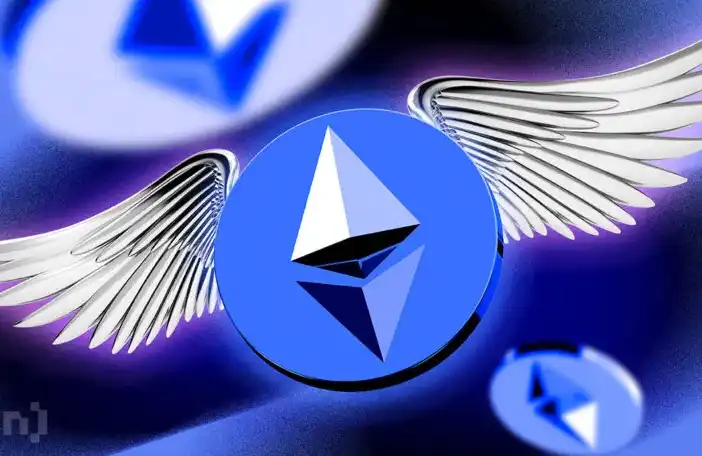NFT Meme YAT: A new combination of meme and domain names
原文标题:《 三分钟读懂 Yat:如何用 NFT 表情包打造个人数字名片?》
原文来源: 李科,链闻
Yat Is a project that plans to combine memes with NFT and currently has nearly 40,000 users on Discord. Yat the features of this project to face pack into a decentralized digital identification system, the project team believe that expression is a truly global language, it can represent many things, not only express emotions in expression package, can also be used to share stories, music, touch, movement, or on behalf of any other party.
In Yat team point of view, expression package has uniqueness, and do not change, allow the user to use a series of personalized customization expression package to as their general user name, as a social media account, use expressions package to send and receive transfers, chat with friends, create a web site, the expression package as the url to redirect to a url. More important is the use of memes to replace long, hard-to-remember addresses for digital currency wallets.
Sounds fun and a little crazy, right?
What Yat is about to do is very reminiscent.Linktree, users can collect their addresses of videos, e-commerce, blogs and other websites through LinkTree. LinkTree will generate exclusive and unique links, and users can share this unique URL to each platform to form digital business cards of users. LinkTree previously raised $10.7 million in Series A funding in October 2020 and $45 million in Series B funding in March 2021. What Yat is trying to do is turn that link into a meme and combine it with NFT to create a decentralized digital business card or digital identity system.
So far, the team has created hundreds of beautifully designed emojis for auction, covering seven categories: activities, animals and nature, food and drink, objects, people and smiling faces, symbols, travel and landmarks.

Who is developing the YAT project?
Riccardo Spagni (Co-Founder) : Monero Code Core Contributor, Tari  Co-founder.
Naveen Jain (Co-Founder) : Investor with nearly a decade of track record, entertainment entrepreneur, and co-founder of TARI.
TARI is the underlying development agreement for the YAT project, created in 2018 by Riccardo Spagni, Naveen Jain, and Dan Teree. TARI is a side chain of Monero. TARI is headquartered in South Africa and has offices in California. TARI is a decentralized digital asset protocol based on Rust for the distribution of digital assets such as tickets, in-game items, points, and digital native assets such as crypto cats.
At present, TARI has released mobile wallet APP, block query browsing page, and node software for downloading and running nodes.
The technical implementation
YAT's concept of emojis as generic user names on the Internet is similar to the way that every website has a domain name. YAT emojis are the domain names that map emojis to the corresponding applications and resources through DNS-like resolution. Individuals, organizations and entities can parse records by binding their YAT IDs to point their emojis' domain names to their URLs, social media accounts, digital currency wallet addresses, map data, email addresses, and more. Yat classifies the meme IDs as follows according to the type of resource they point to.

Classification of YAT Emoji ID & NBSP;
Project characteristics and resistance to review
What makes the YAT emoji different from a normal domain name is that it combines the concept of a non-homogeneous token NFT with the artistry of the emoji, rather than just using a string of letters or numbers and using the popular NFT auction to sell the YAT emoji domain name. Currently, Yat emoji domains can contain anywhere from one to six emoji images, and users can customize their Yat emojis to show their identity story, lifestyle or brand image. Because YAT emoji domain name and DNS resolution are all carried out on the chain, so decentralization and anti-censorship is one of the highlights of YAT project. In a centralized network, domain name can be cancelled and banned at any time. If most blockchain projects are doing some decentralized applications, So what YAT is trying to do is create a door into the world of decentralized apps, and it's a door with a lot of meaning and emotion.
Interesting meme auction
Yat is currently selling NFT memes at auction, and on April 2, the project held its first batch of 18 rare memes, with prices ranging from $30,000 to $420,000. The auction is on Discord.

Only those who have purchased the PRISM Key in advance will be able to participate in the auction. In the first batch, only 100 tickets are available. Each ticket ranges from $15 to $20. Each person is limited to one ticket, which can be transferred to others after purchase.
After the auction, the highest bidder needs to make payment with BTC, ETH, USDC or XMR within one hour. Otherwise, the bidder will be disqualified and replaced by the second highest bidder.
YAT is currently in the process of a new round of codenamed  Cloud 35 The auction.
Rate the memes
Yats emojis are rated differently, based on a two-part scoring system: a "generational" and "cool" index, which makes each emoji unique.
"Generation" refers to when the Yat emojis were created, and the first batch of emojis were called Generation Zero. Generation Zero will be the first set of emojis since the founding of YAT, so it has a valuable uniqueness. No date has been set for the next generation of Yat emojis, but they could come anytime.
Yat's "coolness" index is a number between 1 and 100, which is algorithmically determined by three key factors (length, popularity, and style). The higher the "coolness" index, the rarest the meme, and the greater the demand.
There are only 450 emojis in the current YAT collection that reach 100 on the "cool" scale.

Next step
Yat's vision is to make emojis autonomous digital identity systems that are expressive and censors resistant. The team attaches great importance to privacy and Internet freedom as fundamental human rights.
YAT is currently working on Oracle services to distribute YATS emojis as NFT on EVM-compatible chains such as Ethereum or BSC. Next, YAT will evolve from centralized to fully decentralized, and eventually build a decentralized digital identity system.
The last attempt to develop a decentralized universal identity system was Onename. IO, founded in 2014 by Muneeb Ali and Ryan Shea, which later morphed into the Blockstack project. It will be interesting to see how the YAT project, which now introduces the concept of emojis and NFT, will build a new generation of universal identity systems and how far it will go.
The original link
Welcome to join the official BlockBeats community:
Telegram Subscription Group: https://t.me/theblockbeats
Telegram Discussion Group: https://t.me/BlockBeats_App
Official Twitter Account: https://twitter.com/BlockBeatsAsia


 Forum
Forum OPRR
OPRR Finance
Finance
 Specials
Specials
 On-chain Eco
On-chain Eco
 Entry
Entry
 Podcasts
Podcasts
 Data
Data

 Summarized by AI
Summarized by AI




